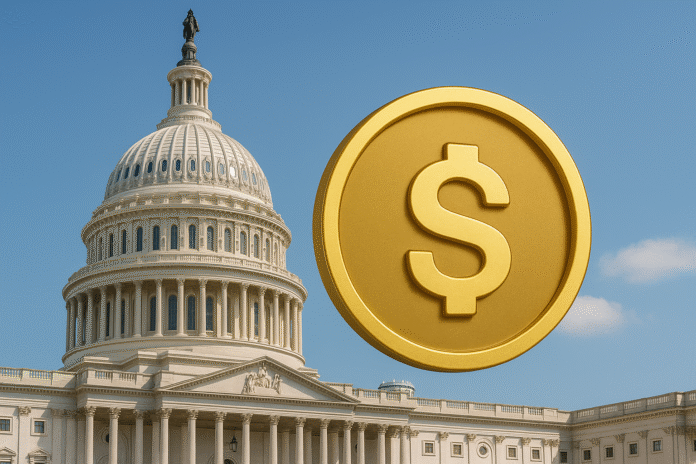Quick Takeaways:
- The Genius Act officially creates a legal framework for stablecoins in the U.S., requiring full asset backing and registration.
- It could open the door for major financial institutions to enter the stablecoin space with confidence.
- This law puts the U.S. on a more equal footing with other regions in regulating digital assets responsibly.
Alright, so here’s something big that just happened in the crypto world—and honestly, it’s been a long time coming. The U.S. Congress just passed what’s called the Genius Act, and while the name might sound a bit dramatic, the law itself is pretty straightforward: it finally gives stablecoins a clear legal framework in the U.S.
For anyone who’s been watching this space for a while, you’ll know stablecoins have been in legal limbo. Are they money? Securities? Something else entirely? It’s been this confusing gray zone where even the experts couldn’t agree. The Genius Act steps in to cut through that fog.
What Does the Genius Act Do?
At its core, the law sets rules for stablecoin issuers—the companies or platforms that create and manage coins like USDC, USDT, or new dollar-pegged tokens. The biggest shift? If you want to issue a stablecoin in the U.S., you now have to prove that it’s backed 1-to-1 by real assets like cash or U.S. Treasury bonds. No funny business. No algorithmic stablecoin voodoo like TerraUSD, which—let’s be real—ended in disaster.
Another key part of the law: companies have to register with federal agencies (think SEC or the Fed) depending on their structure. That means more transparency, more oversight, and probably fewer fly-by-night operators trying to cash in on hype.
Why This Matters
Up until now, the U.S. has kind of fumbled around with crypto regulation. There’ve been lawsuits, guidance memos, and a whole lot of “we’ll get back to you on that.” Meanwhile, other countries—like the EU with its MiCA rules—have been pulling ahead when it comes to setting actual laws. The Genius Act helps the U.S. catch up.
It also gives big financial institutions a reason to finally get off the sidelines. Banks love certainty. If they’re going to dabble in issuing or holding stablecoins, they need a legal green light. This act gives them one.
Imagine if PayPal or JP Morgan want to launch their stablecoin—which, by the way, they kind of already do—now they can do it under a real legal framework. That’s a major step toward mainstream adoption.
A Personal Thought
Honestly, this kind of move feels like crypto growing up. It’s like we’re finally admitting, “Yeah, this stuff isn’t going away, so we better figure out how to manage it.” And look—regulation can be a buzzkill, but it’s also what turns cool tech into serious infrastructure. We don’t need more collapses like Terra. We need stability, especially when it’s literally in the name.



